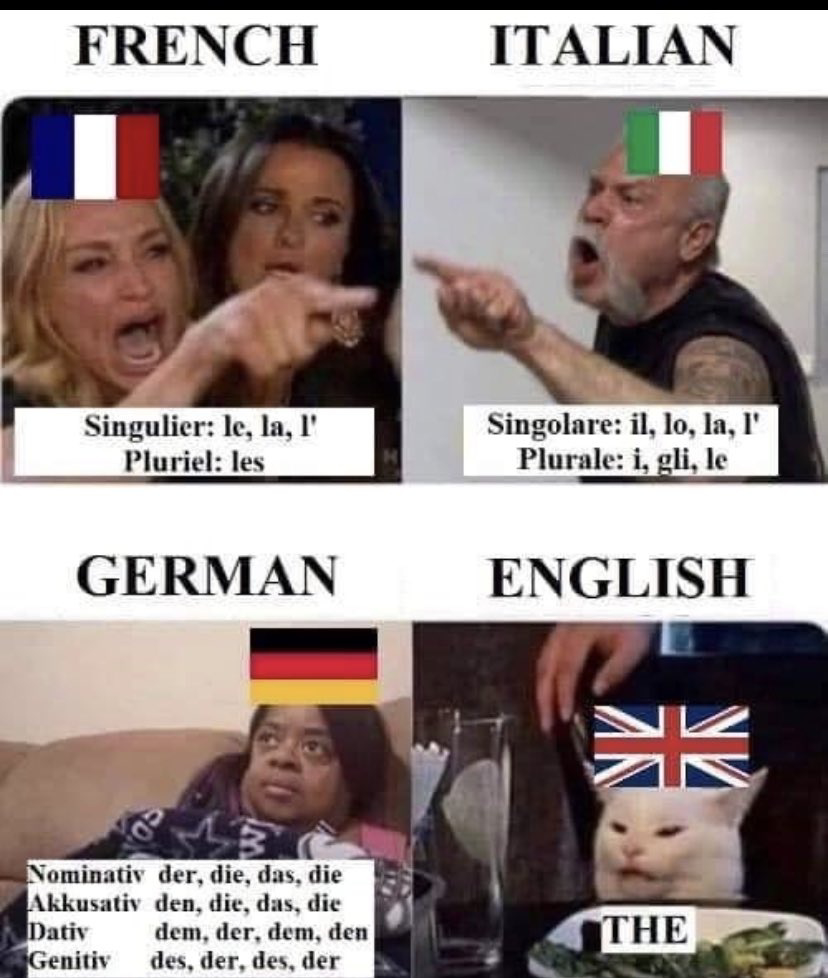this post was submitted on 07 Aug 2023
1061 points (97.1% liked)
Memes
46066 readers
13 users here now
Rules:
- Be civil and nice.
- Try not to excessively repost, as a rule of thumb, wait at least 2 months to do it if you have to.
founded 5 years ago
MODERATORS
you are viewing a single comment's thread
view the rest of the comments
view the rest of the comments

Japanese: wtf are you talking about?
Finnish: No, seriously, what are they talking about?
Chinese too
I'm still learning but what about wa (わ)? It's used to signify the subject of a sentence I think.
It's actually 「は」, and... kind of. It marks the topic, which is sort of the thing the conversation is generally about, which typically is the subject of each sentence, but not necessarily. It's kinda hard to explain it well since it doesn't really map cleanly onto any grammatical feature in english.
Well the "ha" (は) pronounced "wa" is basically like a pointer to the word before it. Like smb. comments "THIS" after it.
The "wa" (わ) character on the other hand is used as a letter in a word. It won't usually stand alone in a sentence (which is a bit weird since the japanese usually don't use spaces so you just have to guess/know)
The は is also used in words so have fun knowing when it is a particle and when not.
I am just a beginner on japanese.
Yeah, don't confuse people if you don't know anything about a language.
That's like saying 'I was so confused what an atre is, until I realized it's not the atre but theatre!'
は and が are something you can call 'subject markers', just like を is an object marker. They come after words to describe their position in a sentence. The same way you have Kasus/Fälle in German.
I thought that's the is/am/are (I forgot the term for these)
The word you're looking for is "copula", and it's actually 「です」(desu)
or だ or some other ones, but yes.
Wa just signifies the subject (The translation would be "as for ...")